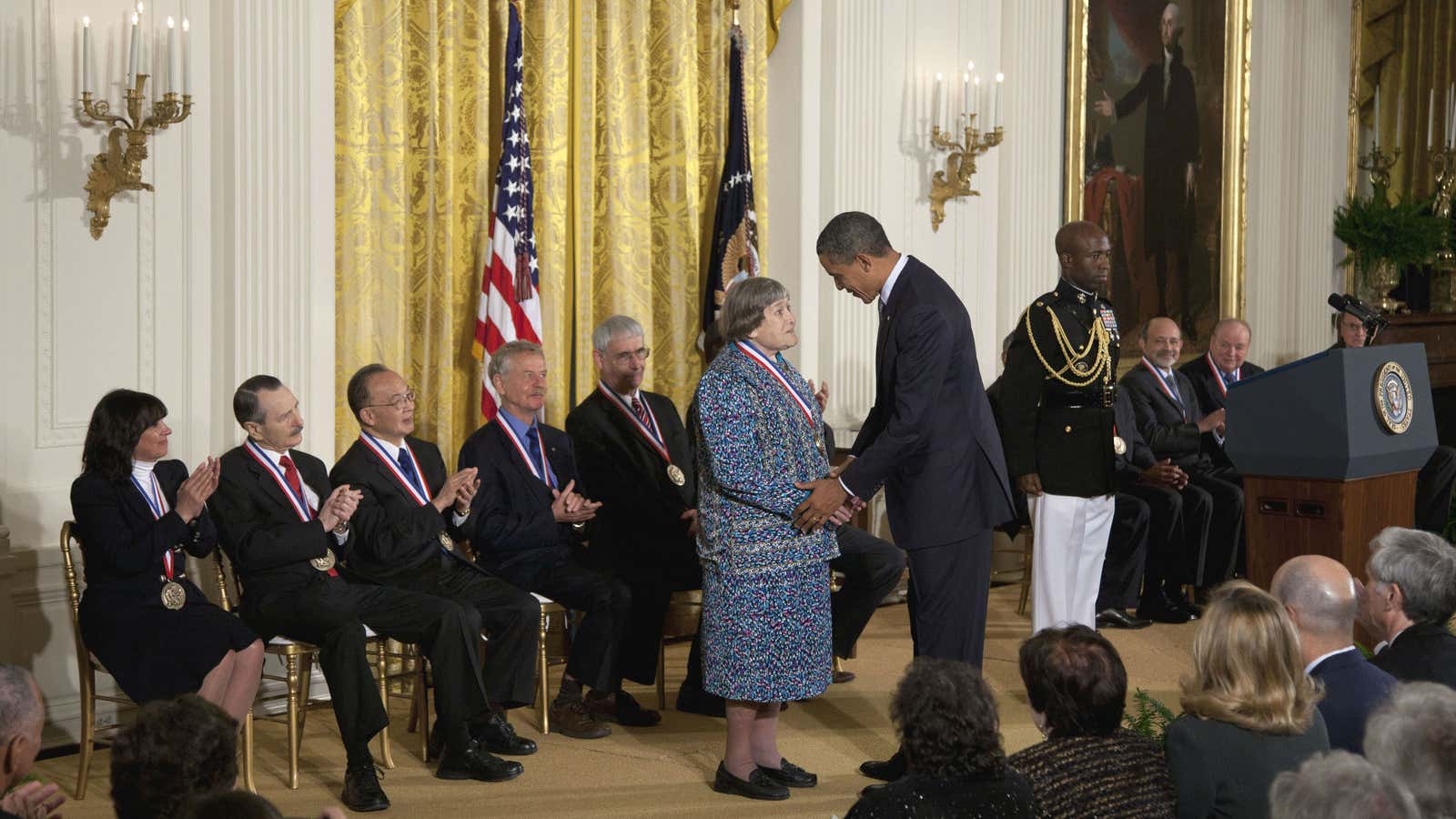By day, Emily Temple-Wood, 21, is a student of biology at the university of Loyola in Chicago on a path to start medical school in 2017. But by night, she is even more impressive: she runs Wikipedia’s Women Scientists project to improve the coverage of women scientists on Wikipedia. She was inspired, at 18, after finding out that many of the profiles of women scientists belonging to the Royal Society of Science didn’t have a Wikipedia page.
Since launching, her project (to which 76 Wikipedia authors and editors now contribute) got nearly 400 women scientists on Wikipedia’s front page, and Temple-Wood’s efforts to improve gender bias in science coverage has been labeled as “epic,” the Wikimedia Foundation reports. Beyond the fact that many of the profiles of female scientists are missing, there is a problem in the way the existing ones are written, Temple-Wood told Quartz.
Often a woman’s marital status and family is mentioned before her professional achievements. “Kids, husband,” Temple-Wood says, “that does not belong there, before I talk about professional life.” As an example, she mentions the New York Times’s 2013 obituary of Yvonne Brill, a rocket scientist, which began as follows: “She made a mean beef stroganoff, followed her husband from job to job and took eight years off from work to raise three children. ‘The world’s best mom,’ her son Matthew said.”
The lead was eventually changed—though no correction appended.
Temple-Wood herself has written 50 profiles since 2013 (and hundreds of Wikipedia entries in her nine years as a contributor), but has an ever-growing list of profiles she wants to write—118 at the moment, beginning with the female African-American physicians recognized by the National Library of Medicine who do not have a Wikipedia page. But what keeps her list growing is rather unusual: hate mail.
Though she has been targeted by hate mail ever since becoming a Wikipedia writer, at 12, founding the Women Scientists project escalated the problem. Now, she receives one or two nasty emails every day, she told Quartz, with ”comment about [her] body and what [she] should and should not do.” “I can almost completely guarantee it’s [all] men,” she said, and these emails “are very sexual in nature, implying I am giving out sexual favors.”
Last year she decided that instead of replying to the emails she would write a profile of a female scientist for every nasty email she received. That’s how her profile to-do list got so long.
“I wanted to do something more feminist and empowering,” Temple-Wood told Quartz, than simply reacting to the provocation. “In the end it comes down to misogyny,” she said, and focusing her energies to fighting it with something productive for women.
